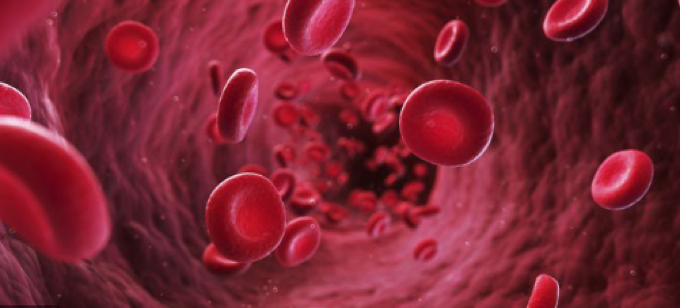Gene therapy: Hope for patients with beta-thalassemia?

Last Updated on September 19, 2022 by Joseph Gut – thasso
September 16, 2022 – Beta thalassemias (β thalassemias) are a group of inherited blood disorders. They are forms of thalassemia caused by reduced or absent synthesis of the beta chains of hemoglobin that result in variable outcomes ranging from severe anemia to clinically asymptomatic individuals. Global annual incidence is estimated at one in 100,000 affected individuals. Beta thalassemias occur due to malfunctions in the hemoglobin subunit beta or HBB. Beta-thalassemia is an inherited blood disorder that causes a reduction of normal hemoglobin and red blood cells in the blood, through mutations in the beta-globin subunit, leading to insufficient delivery of oxygen in the body.  The reduced levels of red blood cells can lead to a number of health issues including dizziness, weakness, fatigue, bone abnormalities and more serious complications. Transfusion-dependent beta-thalassemia, the most severe form of the condition, generally requires life-long red blood cell transfusions as the standard course of treatment. These regular transfusions can be associated with multiple health complications of their own, including problems in the heart, liver and other organs due to an excessive build-up of iron in the body. The severity of the disease in individual patients depends on the nature of the mutation.
The reduced levels of red blood cells can lead to a number of health issues including dizziness, weakness, fatigue, bone abnormalities and more serious complications. Transfusion-dependent beta-thalassemia, the most severe form of the condition, generally requires life-long red blood cell transfusions as the standard course of treatment. These regular transfusions can be associated with multiple health complications of their own, including problems in the heart, liver and other organs due to an excessive build-up of iron in the body. The severity of the disease in individual patients depends on the nature of the mutation.
There is hope for affected patients. Thus, the American Food and Drug Administration (FDA) has very recently approved a first cell-based gene therapy to treat those adult and pediatric patients with beta-thalassemia who require regular blood transfusions, i.e., for those patients with severe forms of beta thalassemia.
We talk here about Zynteglo (betibeglogene autotemcel). Zynteglo (betibeglogene autotemcel) is a one-time gene therapy product administered as a single dose. Each dose of Zynteglo is a customized treatment created using the patient’s own cells (bone marrow stem cells) that are genetically modified to produce functional beta-globin (a hemoglobin component).
 The safety and effectiveness of Zynteglo (betibeglogene autotemcel) were established in two multicenter clinical studies that included adult and pediatric patients with beta-thalassemia requiring regular transfusions. Effectiveness was established based on achievement of transfusion independence, which is attained when the patient maintains a pre-determined level of hemoglobin without needing any red blood cell transfusions for at least 12 months. Of 41 patients receiving Zynteglo (betibeglogene autotemcel), 89% achieved transfusion independence.
The safety and effectiveness of Zynteglo (betibeglogene autotemcel) were established in two multicenter clinical studies that included adult and pediatric patients with beta-thalassemia requiring regular transfusions. Effectiveness was established based on achievement of transfusion independence, which is attained when the patient maintains a pre-determined level of hemoglobin without needing any red blood cell transfusions for at least 12 months. Of 41 patients receiving Zynteglo (betibeglogene autotemcel), 89% achieved transfusion independence.
We should also be aware, however, that the package insert of Zynteglo (betibeglogene autotemcel) comes with a impressive collection of potential adverse effects associated with this type of therapy.The most common adverse reactions associated with Zynteglo (betibeglogene autotemcel) included reduced platelet and other blood cell levels, as well as mucositis, febrile neutropenia, vomiting, pyrexia (fever), alopecia (hair loss), epistaxis (nosebleed), abdominal pain, musculoskeletal pain, cough, headache, diarrhea, rash, constipation, nausea, decreased appetite, pigmentation disorder and pruritus (itch). Moreover, this catalogue of adverse effects some from a very limited number of clinical study participants only; we may have to expect many more events once the therapy is used in an extended number of patients of all age groups, and perhaps even more importantly, patients of very different ethnicities.
There is a potential risk of blood cancer associated with this treatment; however, no cases have been seen in studies of Zynteglo (betibeglogene autotemcel). Patients who receive Zynteglo (betibeglogene autotemcel) should have their blood monitored for at least 15 years for any evidence of cancer. Patients should also be monitored for hypersensitivity reactions during Zynteglo (betibeglogene autotemcel) administration and should be monitored for thrombocytopenia and bleeding.
This application was granted a rare pediatric disease voucher, in addition to receiving Priority Review, Fast Track, Breakthrough Therapy, and Orphan designations in the USA. However, the product appears not without controversy. Thus, quit in contrast to the approval by the FDA, on 24 March 2022, the European Commission withdrew the marketing authorisation for Zynteglo (betibeglogene autotemcel) in the European Union (EU). The withdrawal was at the request of the marketing authorisation holder, bluebird bio (Netherlands) B.V, which notified the European Commission of its decision to permanently discontinue the marketing of the product for commercial reasons. Zynteglo (betibeglogene autotemcel) had previously been granted conditional marketing authorisation in the EU on 29 May 2019 for treatment of transfusion-dependent β-thalassaemia (TDT). The marketing authorisation was initially valid for a 1 year period. It was subsequently renewed for an additional 1-year period in 2020 and 2021.
See here a sequence with a discussion of the present gene therapeutic strategy for beta thalassemia treatment:


Leave a Reply
You must be logged in to post a comment.
Optional: Social Subscribe/Login